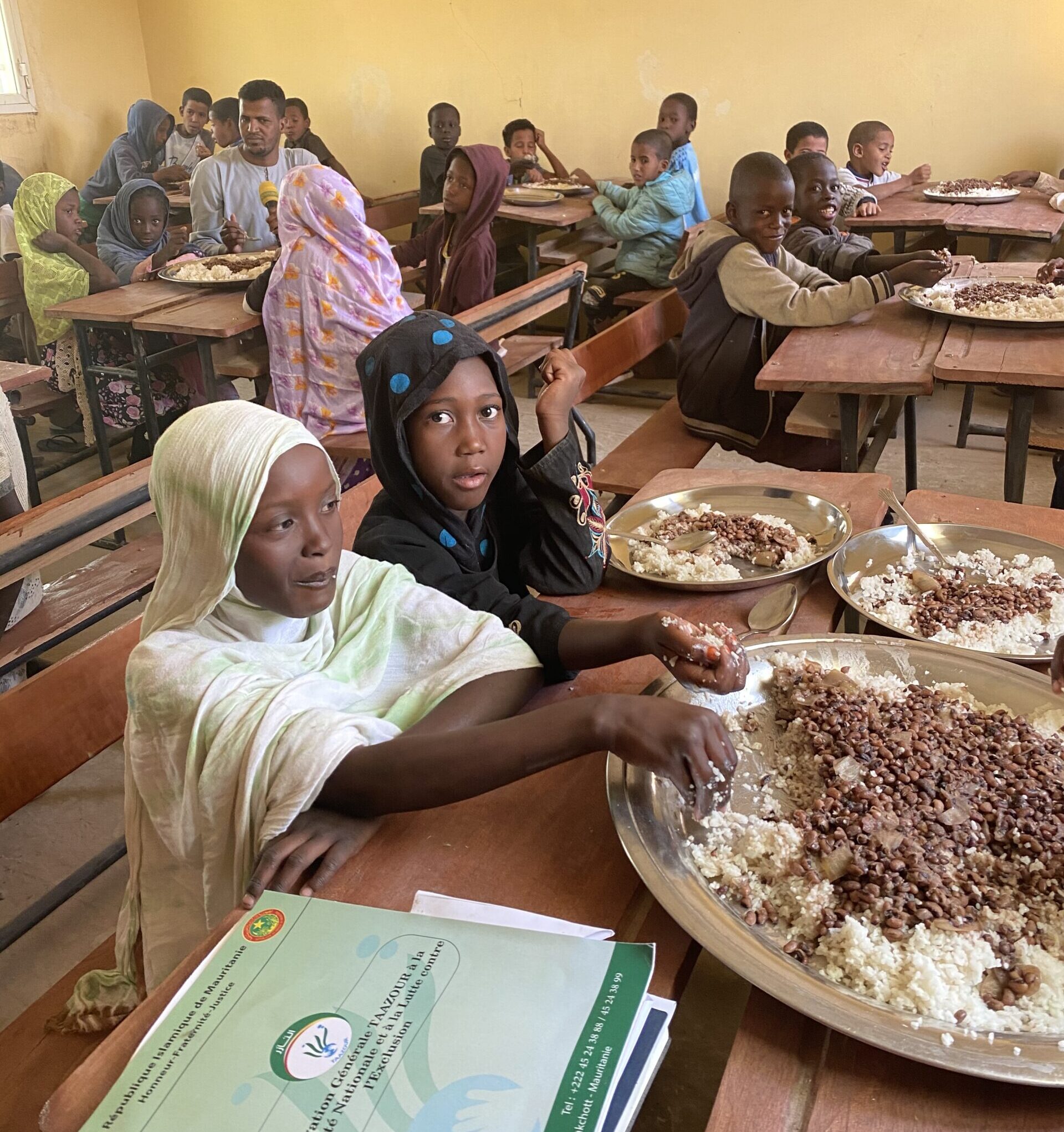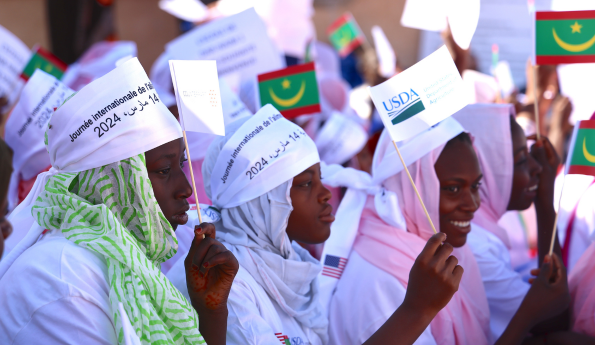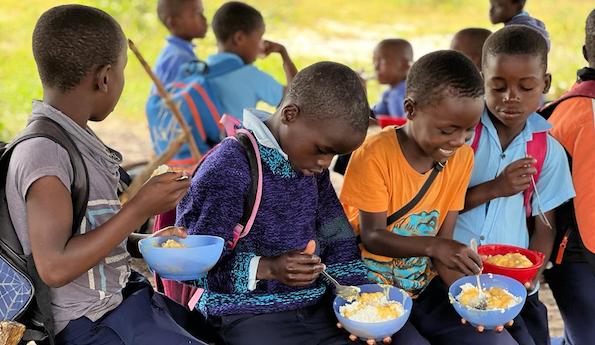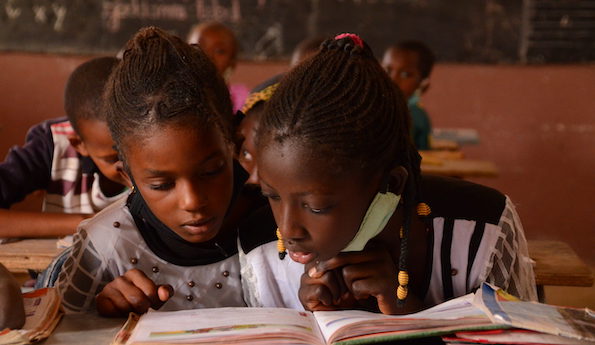The school cafeteria is more than just a place to grab lunch. The communal environment acts as a social setting where students from all backgrounds come together in fellowship over a meal, regardless of their political, social, or economic status. School officials in the Brakna and Gorgol regions of Mauritania have witnessed the power of school meals in building social cohesion through our USDA-funded McGovern-Dole International Food for Education and Child Nutrition project, known as “The Future is Ours!” The project provides more than 6 million daily nutritious meals to nearly 75,000 students from 209 schools.

Bababe Diaw, the Boumdeid departmental school inspector from the Gorgol region.
Bababe Diaw, the Assaba departmental school inspector, has observed how school meals are making a substantial impact in reducing social stigmatization and inequality among school children. The dining environment has emerged as a significant factor in shaping the students’ positive experiences of, and attitudes towards, school dining. Whether they come from a wealthy or poor family, children see the lunch period as a sacred time. “It is important for us to eat together; we have time to chat and see each other every day before going home,” said a child who was asked about their experience in eating together at school.
“In a program like McGovern-Dole International Food for Education and Child Nutrition, it is easier to focus on high level results like number of meals, increases in school attendance rate for children, number of children dewormed,” Diaw said. “It is true we can focus on that to tell the story, but we often forget to mention how the food children share in schools brings about social cohesion. For me the school becomes the driver of oneness, children from different cluster groups come together, eat together, and play together around the meal Counterpart provides to our schools.”

Students in Bousteila enjoy lunch from the canteen.
Even in towns such as Assaba where many children have meals available, Diaw said they prefer to “come and eat together with their [classmates] because these are special moments for them to be together with their peers.” he said.
Fostering social cohesion is just one of the many benefits of projects like McGovern-Dole that provide daily school meals. Beyond reducing hunger and boosting educational outcomes, a designated lunch time helps children of all backgrounds to bond with each other, contributing to improved mental and social well-being.






